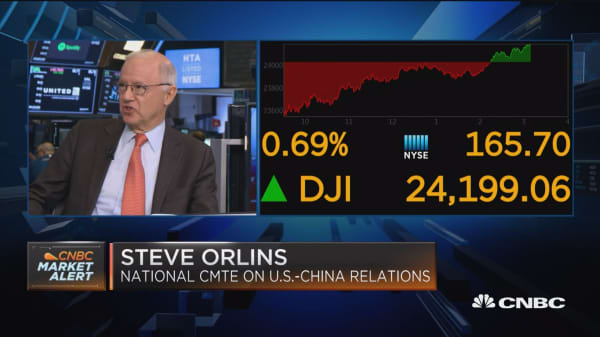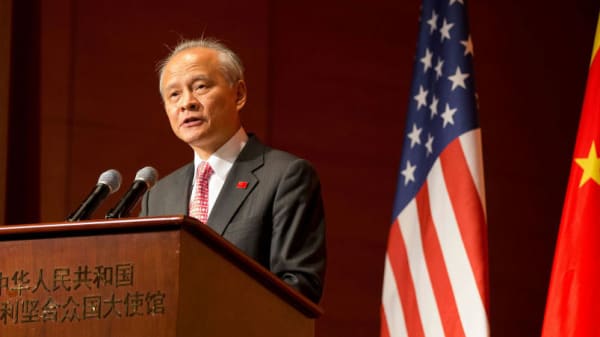China's proposed second round of higher tariffs, announced early Wednesday, would go much further than its first round in targeting major U.S. export products, from cars to soybeans – and they would be tough on states that voted for President Donald Trump.
While it remains to be seen how far Beijing goes in implementing the threatened tariffs, the economic impact of a trade war with China would be felt unevenly from one state to another. So would the political impact.
Among the hardest hit would be farm states such as Iowa, South Dakota and Nebraska that rely heavily on exports of grains like soybeans and corn, along with states like Michigan, Indiana and Ohio that are major producers of cars and auto parts. Those states also turned out for Trump in the 2016 presidential election.
This graphic shows how China's proposed tariffs would affect each state:





